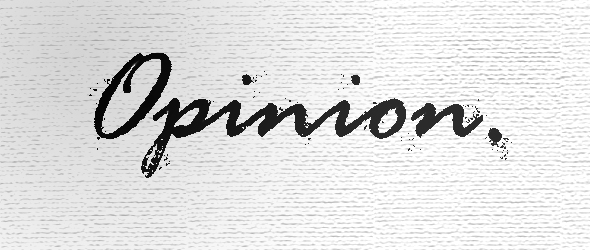By NATALIE SACKET
Columnist
 The humanities are becoming more and more referred to as trivial luxuries. Why write poems when you can develop new technology? Why paint when you can be an engineer with the promise of making hundreds of thousands of dollars? Why create music when you can create skyscrapers? Students are highly encouraged to pursue degrees in STEM (science, technology, engineering and math) courses. And yet, when such a narrow-minded emphasis is placed on STEM, we are becoming… well, narrow-minded.
The humanities are becoming more and more referred to as trivial luxuries. Why write poems when you can develop new technology? Why paint when you can be an engineer with the promise of making hundreds of thousands of dollars? Why create music when you can create skyscrapers? Students are highly encouraged to pursue degrees in STEM (science, technology, engineering and math) courses. And yet, when such a narrow-minded emphasis is placed on STEM, we are becoming… well, narrow-minded.
You see, STEM can serve as a backbone for culture, but it is vital that we integrate art to create STEAM.
It never fails; anytime someone asks what my major is and I respond with “English,” I am immediately asked if I want to teach. Or my favorite, “What on earth are you going to do with that?” Few seem to realize the value that can be found in a liberal arts education, which is a terrifying concept to me as I approach graduation.
I’ve been active in numerous art fields for years, including theatre, creative writing, visual arts and music. At theatre productions, we rejoice if a crowd of fifty shows up. Band concerts in high school consisted of parents and (if we were lucky) administrators.
In a world where our president makes comments such as “folks can make a lot more, potentially, with skilled manufacturing or the trades than they might with an art history degree,” little support or appreciation is given to creative endeavors.
America has always been forward-thinking, with a unique ability to create new ideas and products. The emphasis on general education, with an integration of the arts into math and science allows our future professionals to develop into critical thinkers with the creativity needed to stay ahead in the global economy. Don’t get me wrong, I believe physics, calculus and biology are essential courses; however, I also believe that courses such as English, music, and philosophy are as well.
Even Steve Jobs, a renowned innovator in the field of technology realized the profound importance of the arts, saying, “It’s technology married with liberal arts, married with the humanities, that yields us the result that makes our hearts sing.”
And yet, public school music programs are cut across the state while football programs flourish. Funding is cut for art supplies when new jerseys are bought for basketball teams every other year. Theatres remain in disrepair while entire football stadiums and fields are renovated.
I’ve always had an active imagination, thanks to my participation in the arts, but I certainly hate to imagine a future in which America has completely lost the value of humanities.

